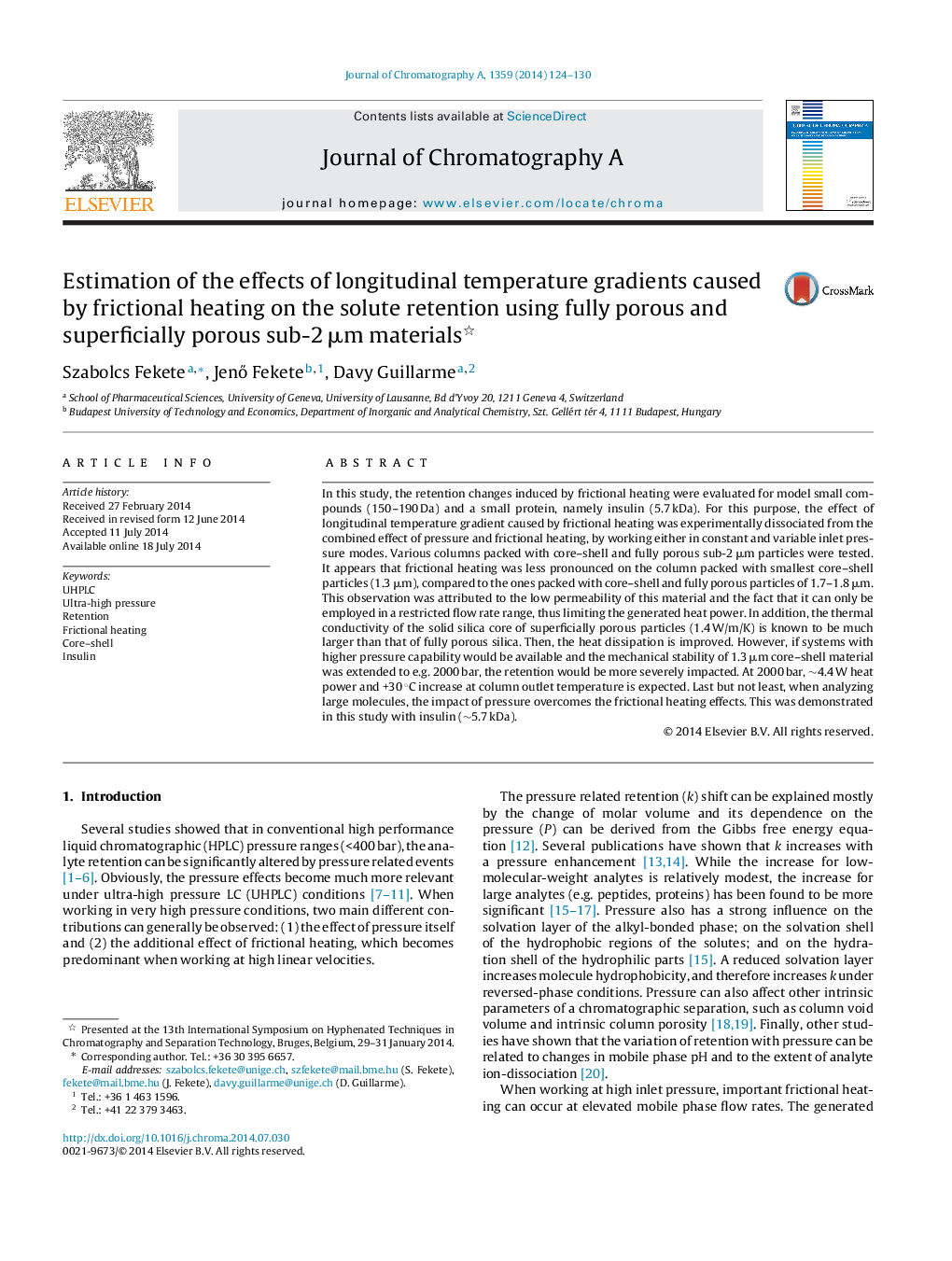| کد مقاله | کد نشریه | سال انتشار | مقاله انگلیسی | نسخه تمام متن |
|---|---|---|---|---|
| 1199391 | 1493567 | 2014 | 7 صفحه PDF | دانلود رایگان |

• The effect of frictional heating on solute retention was estimated.
• Longitudinal friction was experimentally dissociated from pressure related effects.
• For large molecules, the impact of pressure overcomes the frictional heat effects.
• Frictional heating was less pronounced on the column packed with 1.3 μm particles.
In this study, the retention changes induced by frictional heating were evaluated for model small compounds (150–190 Da) and a small protein, namely insulin (5.7 kDa). For this purpose, the effect of longitudinal temperature gradient caused by frictional heating was experimentally dissociated from the combined effect of pressure and frictional heating, by working either in constant and variable inlet pressure modes. Various columns packed with core–shell and fully porous sub-2 μm particles were tested. It appears that frictional heating was less pronounced on the column packed with smallest core–shell particles (1.3 μm), compared to the ones packed with core–shell and fully porous particles of 1.7–1.8 μm. This observation was attributed to the low permeability of this material and the fact that it can only be employed in a restricted flow rate range, thus limiting the generated heat power. In addition, the thermal conductivity of the solid silica core of superficially porous particles (1.4 W/m/K) is known to be much larger than that of fully porous silica. Then, the heat dissipation is improved. However, if systems with higher pressure capability would be available and the mechanical stability of 1.3 μm core–shell material was extended to e.g. 2000 bar, the retention would be more severely impacted. At 2000 bar, ∼4.4 W heat power and +30 °C increase at column outlet temperature is expected. Last but not least, when analyzing large molecules, the impact of pressure overcomes the frictional heating effects. This was demonstrated in this study with insulin (∼5.7 kDa).
Journal: Journal of Chromatography A - Volume 1359, 12 September 2014, Pages 124–130